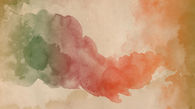Anxiety, Panic and I
- Andrea Cutspec
- Nov 17, 2018
- 3 min read

I once had a therapist tell me, 'your anxiety is a part of you, it is a part of your journey through life- a part of your being. At times it will come at you in the fullest form and at other times it will be absent. What we can do going forward is embrace it for all it's worth and manage the stresses it brings to the best of our ability.'
Years of struggle later, I’ve come to accept that anxiety is indeed a part of my human experience. I like to think of it as a relationship I have in my day-to-day walk through life. Sometimes this relationship can lead me into stressful moments filled with dark twist and turns within my mind, overcast in a space that feels absent from rationale and drifts me away from the present. I have often distanced myself from friends or social events as I find it soothing to be alone. I feel this protects me from straying into the repetitive curves of preoccupied thought patterns and obsessional worrying regarding what I have done wrong that day, what others think of me and overcompensating with trying to satisfy other people’s needs and neglecting my own- Leading me to smile for others, when I really don’t want to. These psychological curves can also lead me into experiencing somatic symptoms felt in my body. For example, my appetite diminishes, my adrenaline and cortisol levels rise leading to chest pains, insomnia, and uncontrollable bowel movements. I turn pale or red in the face and my fingers bleed from my relentless skin picking.
A particular experience that remains clear in my mind and I hope may serve as insight for others was when I had gone into the emergency room one morning due to a prolonged panic attack the night prior. A young doctor stated that I just “needed to calm down”. For me, in that moment, I couldn’t calm down. What that doctor failed to understand was that, those words “calm down” only made my panic worse.
For me, to just “calm down” as prescribed, meant it was my isolated responsibility to relieve my mind of its winding obsessional curves that I had tried to escape for hours; it was up to me to relieve my somatic symptoms that had been lasting for hours the night before and well, it was my duty to “just get over it”. When I couldn’t relieve my body of its somatic symptoms and I couldn’t make my racing thoughts calm down, I felt exceptionally alone in what I was experiencing. I rushed into the very tangible thought that my somatic symptoms were not going to end and I was going to die. I was fortunate enough to have a wonderful and supportive partner at the time, to help me through that particular panic attack once I had left the emergency room and other panic/anxiety attacks that were to follow.
I describe this experience as many people in my life - even well wishing - have vocalised a difficulty in understanding how a panic attack can lead to a fear of dying. But this fear is very real for those in the midst of panic. Think about it, if you experience an extreme lack of control on your own body (similar to if you were in an accident), it is actually natural to feel like you could die.
I have rarely been forthcoming to others regarding my ongoing relationship with anxiety and I can only attribute this to how deeply personal it is and affects my every day being. Even while writing this piece, I feel a tiny knot in my stomach, linked to feelings of shame, embarrassment and of somehow my secret relationship being entirely exposed.
However, sometimes this relationship can be extremely beneficial and work toward my advantage. For example, I’m rarely late to an appointment or a meeting, I return that work email within the hour, I ALWAYS make sure my car emergency brake is on and my hair straightener is turned off. More importantly, it has led me to a deep passion in supporting others in my career as a social worker. And while I embrace the many benefits of what anxiety has to offer, I still continue to strive in finding creative and unique ways to manage this ongoing relationship.
I hope in writing this, I not only take a step forward in deepening my own acceptance of my relationship with anxiety but help others feel they are not alone, who may also have their own unique relationships with mental health.
Andrea Cutspec is a social worker currently based in the U.S. She works with struggling children and families attempting to empower them by facilitating their own healing process.



































Comments